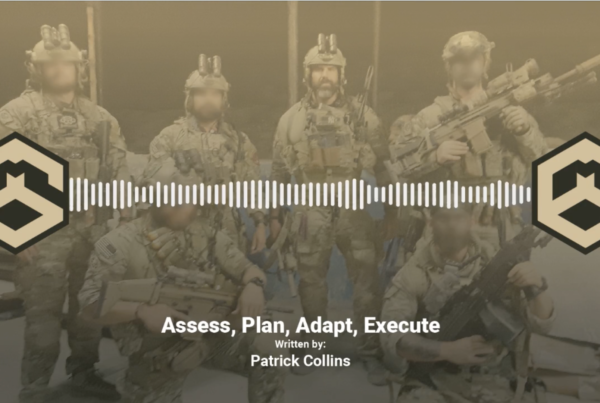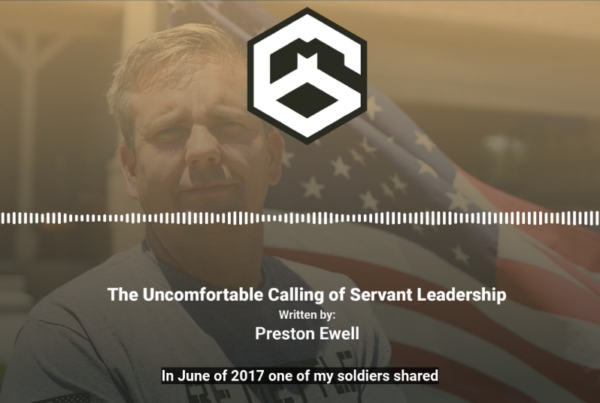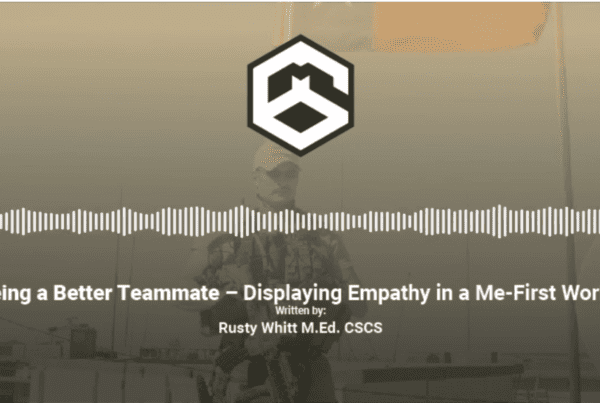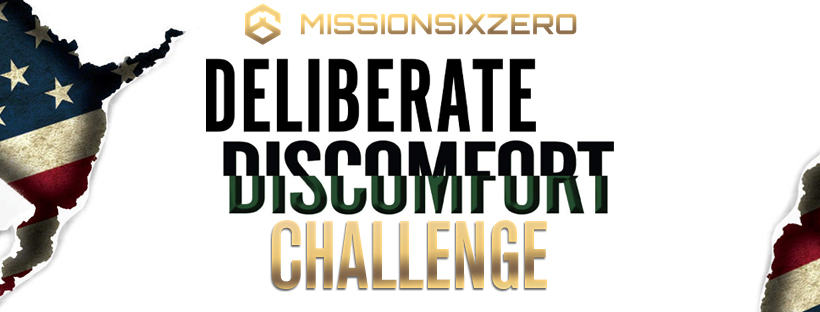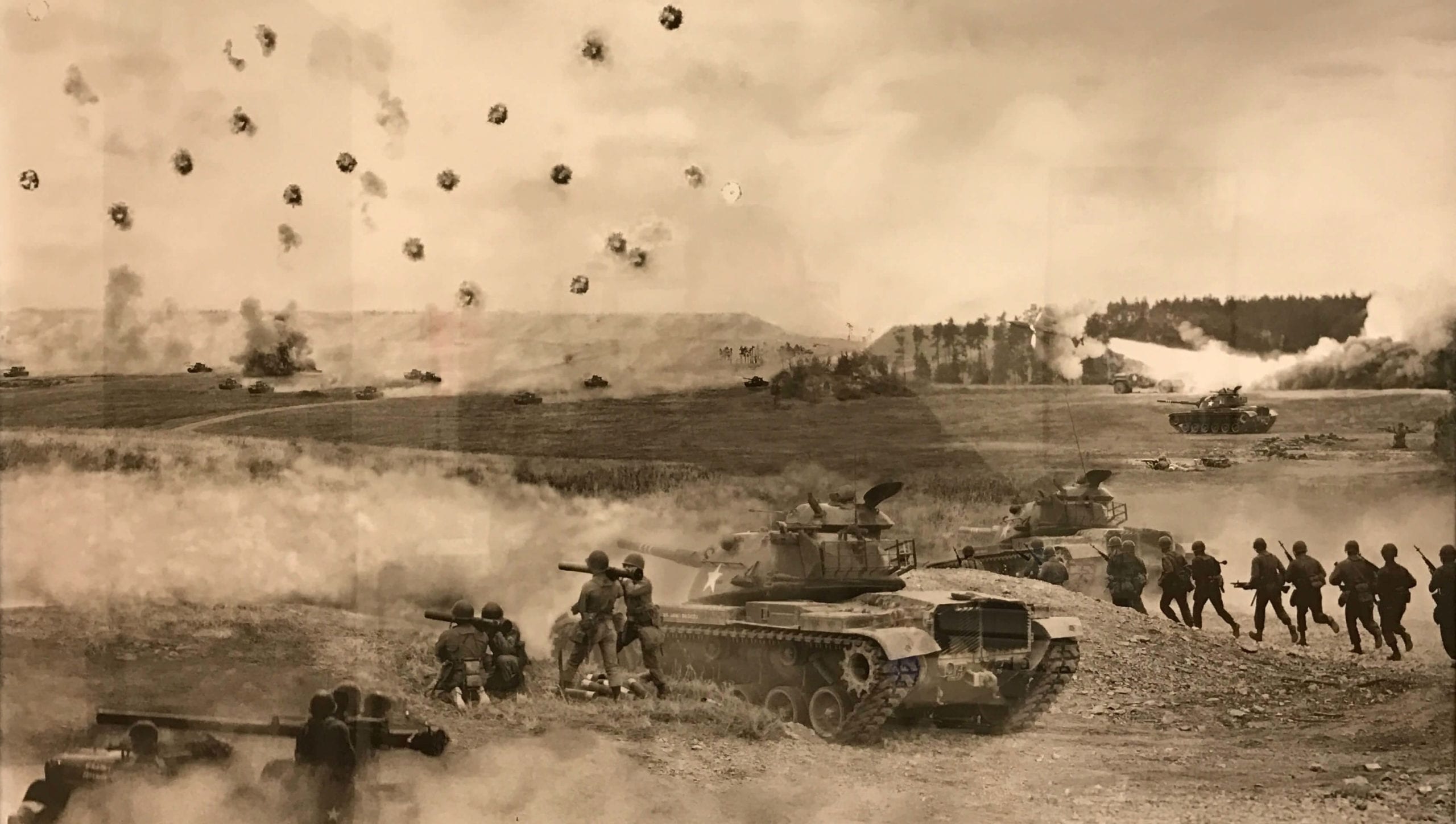
How to take ownership of what happens to you in life
By Kyle Daniels
”I doubt I will ever have another memory as indelible as my first combat deployment.
It was the summer of 2006 and my team was located on one of the largest bases in Iraq at the time. We were the main effort responsible for selecting, training, and advising Iraqi Special Forces (ISF) soldiers to execute high-level combat missions in our area of operation. Training these ISF candidates was relatively easy; most had years of actual combat experience and had received a decent level of combat training from previous American military units. The majority of these ISF candidates were highly motivated, which made them very receptive to the training. They were equally eager to put this training to use for the greater good of their country. In addition to having highly motivated soldiers, we had, close at hand, a seemingly endless access to resources that helped facilitate mission success. Ammunition? Got it. Extra training weapons? Yep. Uniforms, instructors, good training facilities? All at my disposal. You name it, and odds were I could acquire it.
One night in particular sticks out in my mind. We were conducting helicopter training with the ISF candidates, practicing basic on-load / off-load procedures, followed by a quick familiarization flight around the base. It was nothing particularly cool, but the brief moments flying around the night sky of Baghdad offered some rather tranquil moments to reflect on things. I remember thinking how great it was to finally be on a Special Forces team and have so many resources at my disposal to get things done. In training it was quite different. The reality then was make-do and improvise with what you have, because that’s all you get.
Flash forward one year…
My second combat deployment was starkly different than my first. A small element of my ODA was dispatched to a secluded combat outpost (COP) in a small rural village in northwestern Iraq. The day we arrived, I found myself in the middle of the desert staring at a pile of engineer tape, mountainous stacks of empty Kalashnikov ammunition cans, and Iraqi Army (IA) soldiers who looked like they would rather be counting individual granules of sand than do any kind of training. I kept my poker face about me as I took everything in and assessed my surroundings. However, the predominant thought going through my head was, “Are you kidding me? Surely this is a joke.” A joke it was not. Luckily, that thought was very fleeting. I knew there was a lot of work to be done, and I was going to do everything in my power to make mission.
This took place in the summer of 2007 during the surge of Operation Iraqi Freedom. Three teammates from my Special Forces ODA and I were tasked with re-standing up an otherwise incompetent and failed battalion of IA soldiers. The lackluster looks that resided on the faces of the IA soldiers were understandable. They were undisciplined, ill-equipped, and undertrained. The living / training conditions were austere at best. More or less, these were Iraqi civilians who partially bought into the idea of fighting for their country, but were mainly there for a paycheck. Motivation was low. Esprit de corps was nonexistent.
That first night in the COP found me quite restless. This was the epitome of trying to“turn shit into sugar.” Nonetheless, we had our marching orders and we knew that anything less than making our mission was unacceptable, regardless of the lack of equipment and unenthused soldiers. We had roughly two weeks to bring our IA soldiers from a level of not knowing how to properly hold a rifle, to a level of proficiency where they could effectively and safely execute combat operations. Being that Green Berets fight by, with, and through our indigenous counterparts, versus just train them and send them off on their own, it was in our team’s best interest to train them to as high of a standard as possible.
In order to do this, we had to assess what was in or out of our control and take complete ownership of the situation and the processes that would allow us to be successful. We could not afford to make excuses as to why this mission would not be successful; failure simply was not an option.
Personal responsibility – ownership, in other words – is one of the core attributes that allows special operators to be so effective. Since ODAs are small in number, mission success is reliant upon each team member knowing the importance of his individual role as it relates to the overall mission. Furthermore, every team member must take ownership of the requisite decisions and actions that are necessary for a given process. In this case, our process was to engrain the basic soldiering disciplines and skills that would provide a solid foundation for adaptability and growth.
The blessing in disguise with events that take place in combat versus everyday life is that combat related events are magnified and intensified, often amounting to decisions that will either keep you alive or put you in grave danger. Therefore, no detail is too small to overlook and every decision and action must be accounted for. As such, being on the extreme end of the consequential spectrum allows for some unique perspectives. A lot of parallels can be drawn from combat experiences and applied to many facets of life. Below is my take on ownership based off some of the lessons I learned in combat. Hopefully you will find some use for the principle and are able to apply it to your life.
What is ownership?
Ownership is taking 100% responsibility for the outcome of an event or action in which you were in charge of or otherwise had control. This holds true for both successes and setbacks. In addition to owning the outcome, you must equally own the process that brought about that outcome. As a leader, you are responsible for making decisions. These decisions guide your subsequent actions and the direction in which your team will head. In order to truly grow as a leader, you must view ownership in an all-or-nothing fashion. Partial ownership leads to partial results and partial results lead to failure.
Failure is a choice…
In the story above, my teammates and I experienced setbacks on a daily basis. One of the biggest setbacks we faced was overcoming the lack of basic soldiering skills: discipline, respect and support for leaders, working as team, and marksmanship, just to name a few things. Without mastery of these basics there could be no development of advanced skills; the type of skills needed to safely and effectively execute combat operations.
My teammates and I could have easily made excuses about how these IA soldiers were a lost cause and not conduct any type of training with them. This would have made our work temporarily easier, however, in the long run, the consequences of us making excuses would have set future teams up for failure and undermined the overall efforts to train the Iraqi Army to a point where they could be an effective, autonomous fighting force. (*See note at bottom on understanding overall mission intent.)
A common misperception about special operations soldiers is that there is some sort of esoteric skillset bestowed upon us that enables us to execute specialized missions. This could not be further from the truth. Sure, there are courses for the very specialized skillsets we learn, but every one of these courses begins the same way: with basics and fundamentals – the foundational cornerstones.
With this in mind, we identified the specific basics that would yield the greatest returns during future training and drilled them on a daily basis with our IA soldiers.
We could not control whether or not these setbacks occurred, but we could (and did) decide how they would influence our future actions. Experiencing setbacks and falling short of a goal is one of the few absolutes you can count on in life. I intentionally use the word “setback” instead of failure because it is up to you to decide if a shortcoming will be a learning experience that will positively influence future actions, or an obstacle that prevents you from achieving your goal.
A temporary setback does not become a failure until an excuse is made.
You lost a competition, so you place blame on an external source. Your business plan did not pan out as originally intended, so you blame the market for not understanding the brilliance of your idea. Situations such as these are to be viewed as unresolved opportunities for growth. Passing the buck protects your ego by offering an ephemeral alleviation of stress, but does not fix the actual cause of the setback.
The correct course of action is to conduct an honest and thorough self-evaluation, and take absolute ownership for the choices and actions that led to that particular outcome. It is only after this process that you are able to identify the root cause of a problem. This will allow you to reassess, restructure, and execute a new plan.
Success leaves clues…
Successes are the result of a series of disciplined actions – a process. As mentioned above, training the ISF candidates during my first deployment was relatively easy. But with ease often comes complacency. In other words, I didn’t really have to put much thought into the process of training because the plan we developed generally worked as we designed and envisioned it. (As is often the case, and as I came to learn on actual combat operations, things going according to plan is the exception, not the rule.)
It wasn’t until a full year later, when I found myself in completely different circumstances, that I had to really delve into the process and methods of the training protocols used on my previous deployment. Given the two very different mindsets of the groups, I knew I couldn’t use the exact same template, but there were definitely some elements from which I could pick and choose.
For example, starting each training day with the basic skills of the tasks that were taught prior, as well as what we were going to conduct on that particular day, became the standard. We also implemented the use of individual and team competitions on a daily basis, something that was a huge hit in my own training, as well as the training with the ISF candidates. This not only served to build the skill we taught on a given day, but it also built an element of confidence and team unity, both of which initially lacked in the IA soldiers.
Aside from blind luck, discipline is the key element that will determine if your process will be successful. Discipline begets consistency. When compounded consistently over time, disciplined action leads to improvement and development, which ultimately results in achievement. Any time you achieve something, it is important to reflect upon the choices and actions you took so that similar processes can be applied to future endeavors. Take full ownership of these decisions and actions.
Be proud of what you accomplished, but remain humble and respect the process that got you there.
Humbly accepting responsibility of your actions is the type of ownership that will lead to positive growth and development in the future. As it relates to teams or groups, success is the cumulative result of the team’s effort, not just one individual. As the leader of a team or group, you are ultimately in charge of and responsible for making sure the team is set up for success. This does not mean that you are the reason the team was successful. Leaders are facilitators and guiders; they are the glue that holds team together.
Leaders must trust their team members to make the right choices and take the appropriate actions towards accomplishing the overall mission*. When the team succeeds, it is imperative that the leader give all credit to the team — be the person holding the light, not the one basking in it. When you have confidence in your team and place the team’s success over your own personal glory, your team will be more empowered and confident.
The lessons I learned during my second deployment are invaluable. Sure, going through the drudgery of monotonous repetition needed to get the IA soldiers to a competent level of proficiency was not fun. But it was necessary and effective. My teammates and I met our two-week timeline to get the IA soldiers operational, and we were able to make a positive impact in our area of operation as a result.
It is easy to apply this principle of ownership when things are going according to plan. Knowing that contingencies will arise more often than not, you have the unique ability to guide the direction of your team when things deviate. As a leader, you are the standard-bearer of the team. You decide what is acceptable and what is not. Team members will generally follow suit of the person in charge. Knowing this, make it clear by way of your example that an attitude of ownership is the standard, and watch that mindset permeate the overall psyche of your team. The ensuing results will speak for themselves.
(*Note: The overall intent of a mission must be made clear by the leader and understood by all team members. Without clarity of mission, team members do not have a reference point from which to base their individual decisions. This inhibits team members from being able to act autonomously.)


